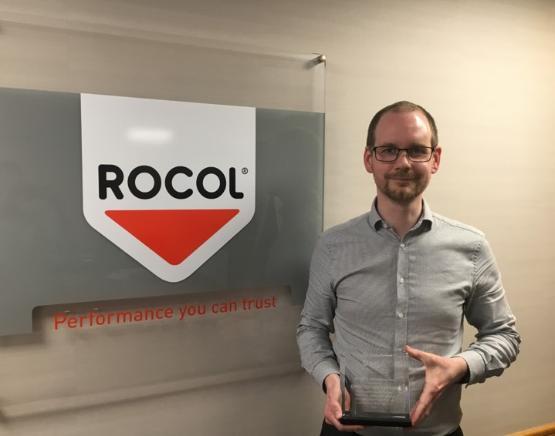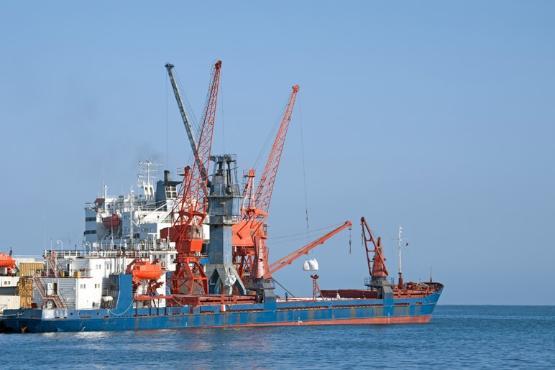Scientific study will mean wire ropes last longer at sea

An industrial engineer with strong links to the University of Bradford has won an award for a study that looks at how lubricants can extend the life of wire ropes used in marine environments.
Wire ropes are typically used aboard ships and to tether boats and oil rigs but their longevity can be limited by excessive wear. Now a new study has shown the best kind of lubricants to extend their life.
Dr Christopher Dyson, who works for lubricant manufacturer ROCOL, along with Professor Martin Priest, Dean of the Faculty of Engineering and Informatics, Dr Richard Chittenden, from the University of Leeds’s School of Mechanical Engineering, and Dr Bill Hopkins, retired Technical Director at ROCOL, recently won the Society of Tribologists and Lubricant Engineers’ (STLE) prestigious Walter D Hodson Award, for leading original research.

Chris said: “I was pleasantly surprised to win the award. This really was a team effort, and involved several years of collaborative research. I’m very thankful to my co-authors, the whole project team, and to STLE. Our findings inform best practice in the wire rope industry, especially for wire rope owners and operators. Our research underlines the importance of the ‘running in’ phase of rope operation in maximising fretting fatigue life. Ultimately, with the proper care, wire ropes can last longer, which has both a cost benefit and reduces environmental impact by extending asset life.”
He added: “This project was successful for everyone involved: It gave industry new insight, developed the science of lubricated fretting wear, connected academic research and teaching to industrial needs in this field, and it benefited students by giving them industrial challenges to work on.”
The research involved running fretting wear tests to identify the most critical lubrication-related parameters for wire ropes, especially those used in the marine environment. The study was published in Tribology Transactions, the official STLE journal.
Prof Priest, who also received an award, said: “Chris is an outstanding researcher, innovator and practitioner who I have worked with throughout his career; from undergraduate student to PhD student and then KTP Associate at ROCOL, and now as a collaborator in research. The work we do together champions student research projects, and the many students we have worked with have been inspired by the experience of working on innovative projects of genuine value to industry
Maintaining and nurturing long term relationships with high technology companies such as ROCOL is vital to academia, as it grounds everything we do in the demands of international industry. ROCOL often seeks the views of trusted academics such as Malcolm, Richard and I, on their latest challenges, and their staff, notably Chris in this instance, contribute their skills and experience to the University sector. At Bradford, Chris also delivers case study lectures to our tribology related taught modules and is an active member of our Industrial Advisory Board for Mechanical and Energy Systems Engineering.”

The STLE Walter D Hodson Award
The award is given to the lead author of the best paper written by an STLE member 35 years of age or younger and published by the society in the prior year. The purpose of the award is to stimulate the interest of young engineers in the science of tribology and lubrication and the activities of STLE. The award was presented at the 2022 STLE Annual Meeting in Orlando, Florida (USA), May 15-19.
About the Society of Tribologists and Lubrication Engineers (STLE)
The Society of Tribologists and Lubrication Engineers (STLE) is the premier technical society serving the needs of over 13,000 individuals and 250 companies and organisations that comprise the tribology and lubrication engineering business sector.
STLE members are employed by the world’s leading corporations, academic institutions and by governmental agencies dealing with science and technology. STLE supports these distinguished technical experts with a variety of professional education and certification programs. STLE is a professional technical society providing a selection of robust resources in technical research, education, and professional development delivered through programming, courses, events and periodicals on topics most important to you: safety, energy usage, maintenance, natural resources, wear and productivity.
